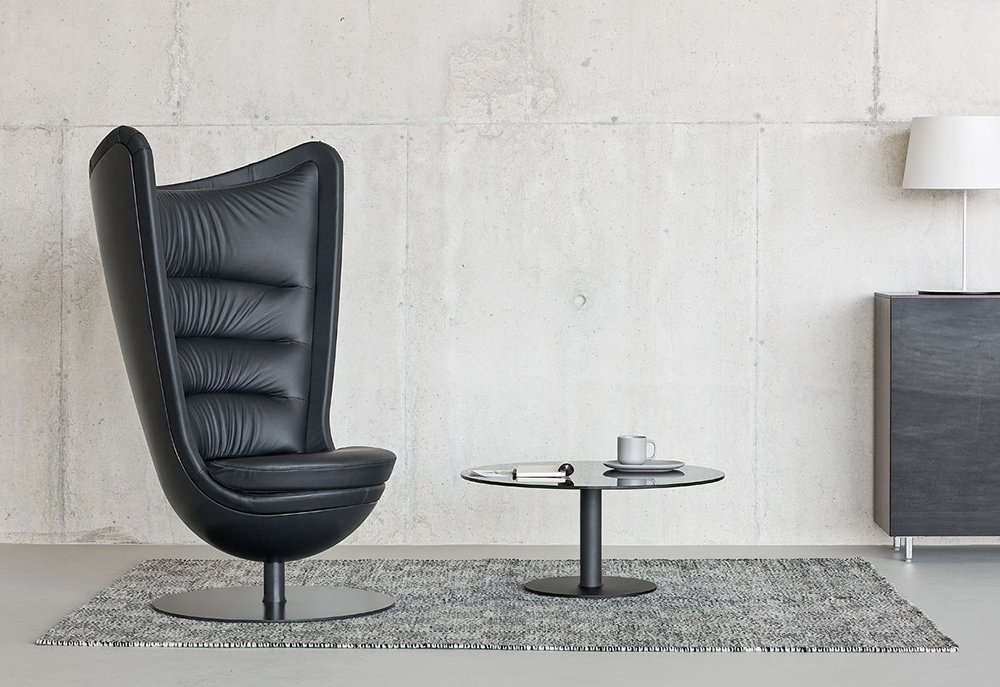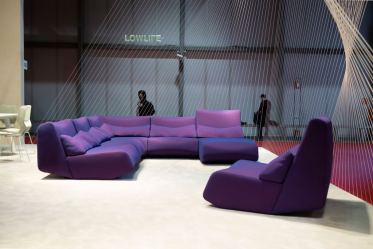
The Netframe easy chair and sofa by Cate & Nelson for Offecct meet the highest of international sustainability standards
We know that investing in well-made, well-designed furniture can pay off long into the future but how can our own choices in what we buy also benefit others in creating a healthier and more ethical planet?
You have no doubt seen that CE logo, an abbreviation of the French phrase “Conformité Européene”, which states a product holds European Conformity to the relevant health, safety and environmental protections deemed essential by the European Committeee for Standardization. What it indicates is that a product can legally be sold in the EU.
Every country has its standards and they reassure consumers that a product has been tested or meets certain criteria. Bicycle helmets and air-bags are obvious purchases required to meet standards, as we want to know we are as safe as possible, but still it is easy to cut corners.

Wing seating is manufactured by Spanish company Actiu – the roof of the factory is covered in solar panels and the water is recycled using an underground system – meaning in nearly ten years they have never had to pay a water or electricity bill.
In the furniture and lighting industry there too are Australian Standards, but often – and most commonly in the replica lighting market – they are not upheld. The regulations cover things such as the maximum weight a pendant light can be without requiring a wire cable, electrical componentry and, the obvious one, that it won’t catch on fire.
On top of these stricter regulations, there are also a series of codes that act as sign-posts for consumers when looking for sustainable and ethical furniture. The international FSC mark, applied to timber and paper, indicates that a product meets the 10-point certification criteria. It tells us that a product comes from an environmentally sustainable forest, and also that the treatment of workers and social considerations right through the supply chain meet global levels.

The Badminton easy chair is part of the Actiu range and brings the top international standards of sustainability home.
Like the FSC program, GECA and the Sustainable Product Accreditation mark products which meet similar criteria though aren’t just based on the timber source. Third-party assessors explore every avenue of a product's manufacture from the glues, foam and upholstery through the actual factories they are made in. Again, it isn’t just about reducing pollution and waste but also about ethics, working conditions and the use of alternate energy to power the supply chain.
These seals of approval don’t come cheap and require major investment in time and money by the companies that apply for them. What they do is reassure us that what we are buying hits the mark and is good for the planet.
Many furniture retailers will only make or sell products that meet these standards and, at a grass roots level, have their own commitments to making consumerism more sustainable. Product delivery is one way to avoid waste – by simply not boxing up a dining chair, space and waste are saved. No cardboard to throw out and wrapping products in blankets means you can fit more in the truck.
They might seem like simple and perhaps obvious measures but in caring for our planet and its people we need to – well … think outside the box.
_
The Offecct and Actiu ranges are part of the Interstudio collection, available in Australia.
For more information on:
FSC click here
GECA click here
WRITTEN BY HouseLab








